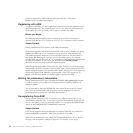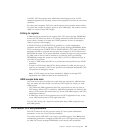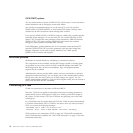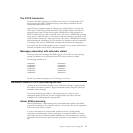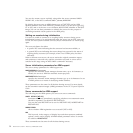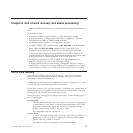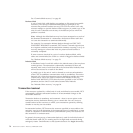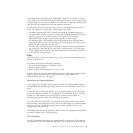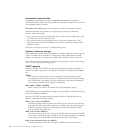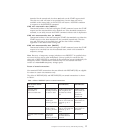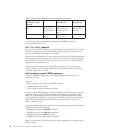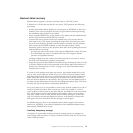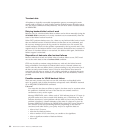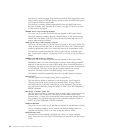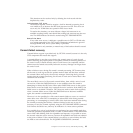Intrapartition transient data
Intrapartition destinations specified as logically recoverable are restored by
transaction backout. Read and write pointers are restored to what they were before
the transaction failure occurred.
Physically recoverable queues are recovered on warm and emergency restarts.
Transient data does not provide any support for the concept of transaction
backout, which means that:
v Any records retrieved by the abending unit of work are not available to be read
by another task, and are therefore lost.
v Any records written by the abending unit of work are not backed out. This
means that these records are available to be read by other tasks, although they
might be invalid.
CICS does not support recovery of extrapartition queues.
Auxiliary temporary storage
CICS transaction backout backs out updates to auxiliary temporary storage queues
if they are defined as recoverable in a temporary storage table. Read and write
pointers are restored to what they were before the transaction failure occurred.
CICS does not back out changes to temporary storage queues held in main storage
or in a TS server temporary storage pool.
START requests
Recovery of EXEC CICS START requests during transaction backout depends on
some of the options specified on the request. The options that affect recoverability
are:
PROTECT
This option effectively causes the start request to be treated like any other
recoverable resource, and the request is committed only when the task issuing
the START takes a syncpoint. It ensures that the new task cannot be attached
for execution until the START request is committed.
FROM, QUEUE, RTERMID, RTRANSID
These options pass data to the started task using temporary storage.
When designing your applications, consider the recoverability of data that is being
passed to a started transaction.
Recovery of START requests during transaction backout is described below for
different combinations of these options.
START with no data (no PROTECT)
Transaction backout does not affect the START request. The new task will start
at its specified time (and could already be executing when the task issuing the
START command is backed out). Abending the task that issued the START
does not abend the started task.
START with no data (PROTECT)
Transaction backout of the task issuing the START command causes the START
request also to be backed out (canceled). If the abended transaction is restarted,
it can safely reissue the START command without risk of duplication.
START with recoverable data (no PROTECT)
Transaction backout of the task issuing the START also backs out the data
76 CICS TS for z/OS 4.1: Recovery and Restart Guide



